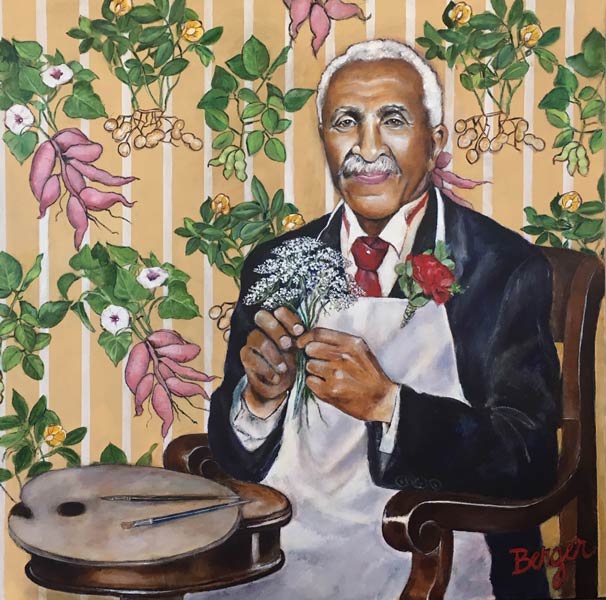Today we celebrate Juneteenth, which commemorates freedom in the United States of America. Cookouts and festivals may have been canceled this year, but the spirit of Juneteenth remains, including calling to attention the life of George Washington Carver.
Carver (1860s-1943) was born enslaved and later developed forms of sustainable farming to assist sharecroppers and other Black farmers across the American South. Above is a portrait of Carver by Donna Berger as part of THBG’s 2019 exhibit Horticultural Heroes.
From history.com:
George Washington Carver was an agricultural scientist and inventor who developed hundreds of products using peanuts (though not peanut butter, as is often claimed), sweet potatoes and soybeans. Born an African American slave a year before slavery was outlawed, Carver left home at a young age to pursue education and would eventually earn a master’s degree in agricultural science from Iowa State University. He would go on to teach and conduct research at Tuskegee University for decades, and soon after his death his childhood home would be named a national monument — the first of its kind to honor an African American.
On June 19, 1865, the Emancipation Proclamation was announced in Galveston, Texas, two and a half years after Lincoln’s original declaration. We recognize however that slavery in all forms did not go away entirely on that day, delayed as it already was, and that racism and discrimination continue in many forms. New England Botanic Garden at Tower Hill believes black lives matter and commits to doing more to rectify the injustices of our society.
Celebrating Juneteenth has become an important tradition in the African-American community, often referred to as “Black Independence Day,” recognizing that the Declaration of Independence America celebrates on July 4 did not include freedom for everyone. To recognize Juneteenth, many families come together and some communities gather for festivals, including in Worcester.

